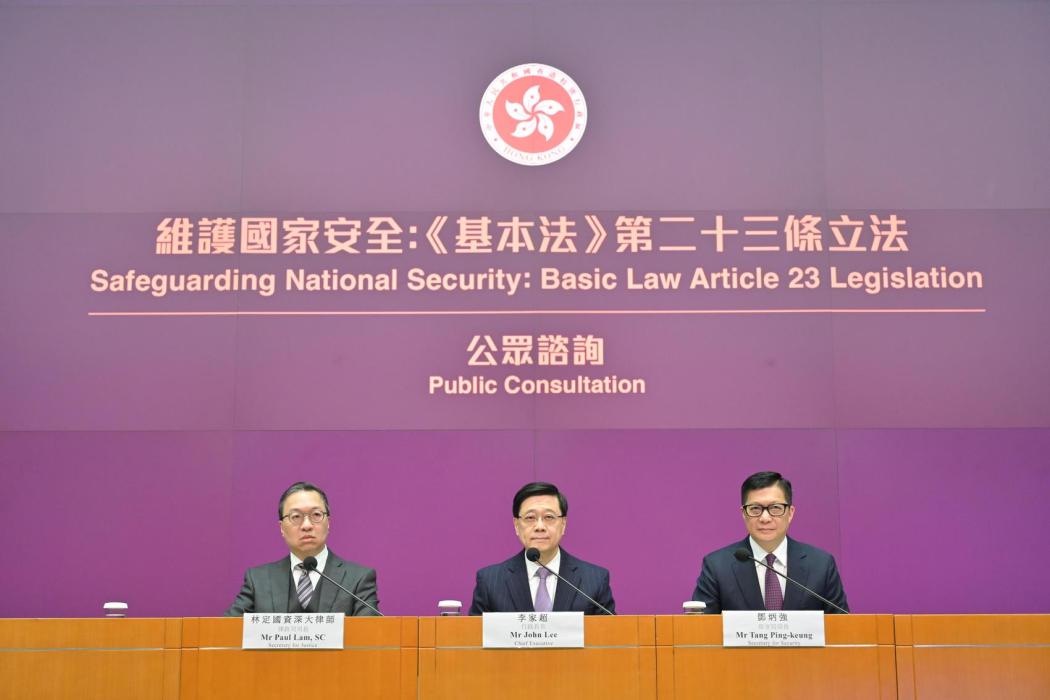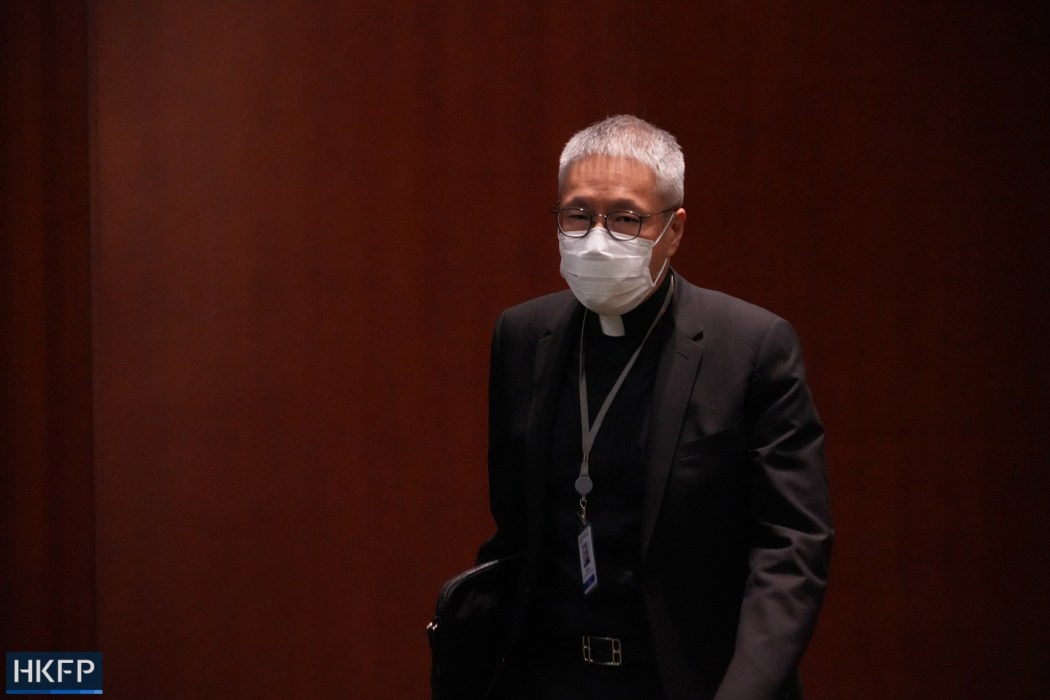Hong Kong has hit out at British newspaper The Times after it published a “misleading” report suggesting that readers holding old newspapers could violate the proposed homegrown national security law.

The Times published the article with the headline “Hongkongers to be jailed for keeping old newspapers” on Monday afternoon. The first sentence of the article read: “Hongkongers could be convicted and imprisoned for sedition for keeping old copies of newspapers, the territory’s pro-Beijing authorities have said.”
The British media outlet added that “[s] ecurity laws being pushed through in Hong Kong would impose up to three years in prison for keeping copies of the defunct newspaper Apple Daily,” referring to the pro-democracy tabloid that shut in June 2021 following arrests and a police raid.
In a statement on Tuesday, the Hong Kong said the report was “extremely misleading.”
“Not only is the report extremely misleading, its headline is also completely wrong, which misleads people into believing that one can be imprisoned for possessing certain old newspapers, thereby generating panic among members of the public,” the statement read.

It added that as stipulated in the draft bill of Article 23, the homegrown national security law, the prosecution has to prove that the defendant possesses the publication “without reasonable excuse” before the defendant may be convicted by the court.
“It is not possible for a person who does not know that the publication concerned has a seditious intention to be convicted,” the statement reads.
‘Reasonable excuse’
Hong Kong authorities have been working to swiftly enact the homegrown security law. The bill was introduced last Friday, just nine days after the end of a one-month public consultation period.
Since Friday, the Bills Committee on Safeguarding National Security Bill has held meetings daily totalling 35 hours to review the draft bill, with extra sessions held on Saturday and Sunday.
Apart from introducing a series of new offences and measures for suspects, prisoners and absconders, the proposed legislation also raises penalties for many offences.
For example, the possession of “seditious publications” could be punishable by up to three years in jail, compared to two years under the current colonial-era sedition law.

During a meeting at the Legislative Council on Monday, pro-Beijing lawmaker Peter Koon asked if people would violate the law if they had copies of the Apple Daily newspaper at home.
Security chief Chris Tang said in response that it would depend if the person accused had a “reasonable defence.”
“[If someone said] I had [the newspaper] for a long time, I didn’t know it was still there, the aim was not to incite… then I believe that could be a reasonable defence,” Tang said in Cantonese.
The newspaper’s founder, media mogul Jimmy Lai, is currently standing in a national security trial in which he faces foreign collusion and sedition charges.
Support HKFP | Policies & Ethics | Error/typo? | Contact Us | Newsletter | Transparency & Annual Report | Apps
Help safeguard press freedom & keep HKFP free for all readers by supporting our team























